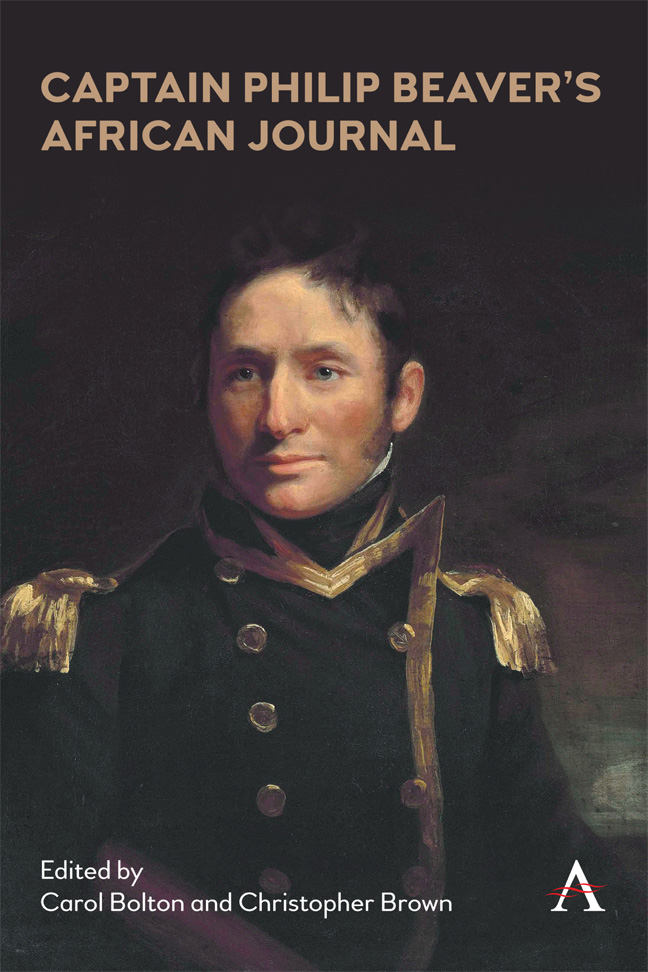Introduction
Published online by Cambridge University Press: 29 February 2024
Summary
In 1805, naval officer Captain Philip Beaver (1766–1813) published his African Memoranda: Relative to an Attempt to Establish a British Settlement on the Island of Bulama, on the Western Coast of Africa, in the Year 1792. His book, which forms the basis of this edition, provides an account of the extraordinary migration of 275 men, women, and children to Bolama, a relatively unknown island in the Bissagos Archipelago off the coast of Guinea-Bissau. Leaving England in April 1792 to set up a colony on the island, a year and a half later almost half the colonists were dead and the rest had returned home. The story of this venture and its melancholy outcome makes up the core of the book. The editorial material (in this introduction and the footnotes to the text) provides information about the people and places that are described, explains in detail the events that took place in establishing the colony, and discusses the Atlantic contexts of the venture at a time when transatlantic slavery was present in Britain and Africa. In doing so this new edition intends to highlight and explain the background and development of a little known, and arguably ill-conceived, attempt, to establish a settlement on the coast of West Africa. As well as seeking new opportunities to better their lives abroad, the colonists intended to demonstrate a socioeconomic model of engagement with Africans that would prove transatlantic slavery was unnecessary. At a time when anti-slavery initiatives were prominent in Britain through the efforts of the Committee for the Abolition of the Slave Trade (formed in 1787) and the parliamentary campaign for abolition led by William Wilberforce in the late 1780s and early 1790s, the Bolama colonists wanted to engage with the problem of slavery in Africa itself. Their leaders embraced Wilberforce's belief that Britons should expiate themselves for their involvement in the slave trade and make ‘reparation to Africa, as far as we can, by establishing a trade upon true commercial principles’.
- Type
- Chapter
- Information
- Captain Philip Beaver's African Journal , pp. xvii - xlixPublisher: Anthem PressPrint publication year: 2023



